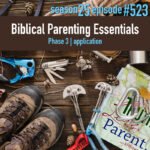[ad_1]
Too often we tend to think Children’s Ministry is just comprised of churches and children, which, technically, it is; but our churches . . . and our children . . . are not identical. Our communities are different. Our people are different. Our histories are different. Our cultures are different. What works in one church, may or may not work in another. And, while there are components which are essential for every Children’s Ministry to be effective, there is no “secret recipe” where if you are certain to include each ingredient, you will be guaranteed an effective Children’s Ministry.
Let me share with you an example of what I’m talking about. A number of years ago I led a training for a church about sixty miles from my this church and town. Both churches were utilizing the same mid-week children’s club, but this church had a culture and community entirely different than the one in the community where I grew up. They were mostly from an upper-middle-class community. Most of the children attended private school and were very academically inclined. This church had a much larger budget than the other did so they were able to purchase journals and awards for each of the children in their club program. Their kids loved writing in the journals and the parents wanted to save their kids’ journals.
The other church was different. As I’ve mentioned, this church’s community is made up largely of single-parent homes. The children attend public school and while children from single-parent homes who attend public school can be motivated to learn and excel, in this case many of these children struggled to read and write. Some of the 5th graders didn’t even know how to spell their own last names or know their own addresses. The parents were not involved and really did not care if their kids wrote in a journal or not. The kids definitely did not want to write in a journal – it was too much like school for them.
Two communities. Two churches. Both churches had a love and passion for their Children’s Ministry and truly wanted to make a difference in the lives of the children in their church and community. But, what worked for one church, did not work for the other. If the church from my community had continued to try to make their mid-week club work as the other church’s club worked, it would have resulted in frustration for the volunteers and kids. The recipe for mid-week club was not the same for these churches even though they used the same curriculum. If the church from my community wants to effectively reach this changing culture of single parent, lower economic families, they can not expect to do things as they did in the past. What is your community and culture like?
Take some time today to think about the unique history, community, and culture of your church and the strengths as well as the challenges they bring to your Children’s Ministry. Before you can be genuinely effective in your ministry, you need to understand these three things and how they impact your ministry.
[ad_2]
Source link

.jpg)






You must be logged in to post a comment.